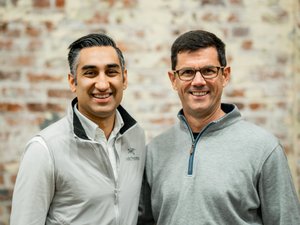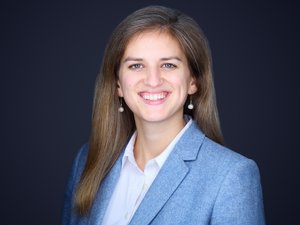
What did you miss at Pitch Breakfast last week?
An engineer in Charlotte has built an app called Pallim to facilitate mobile car repairs. A “digital nomad” is creating a platform to help music producers get paid and be Heard. A blockchain-based marketplace, SSAYE Club, is looking to build smart cities from the ground up. And a content marketing agency, Business of Healthcare, is connecting entrepreneurs to health care decision makers to help the industry embrace innovation — and the entrepreneurs get business.
Those four startups had five minutes to make their pitch last week before the panel of judges at Pitch Breakfast, which included:
- Garth Moulton, co-founder, Jigsaw
- Chris Langford, director, Lowe’s Ventures
- Terry Cox, president of CEO of BIG (Business Innovation & Growth)
Here were the main takeaways from the judges last week:
Pretend investors are idiots
Kyle Bebeau describes himself as “a digital nomad” who is building what he hopes will become an open-source record label.
His company is called Heard, and he started it about three years ago, when he moved to L.A. and got involved in the music community.
“I was working with a lot of creatives, and we were all kind of struggling to sustain our own creative exploration. So I built this platform with the independent producer in mind to be able to generate revenue on their own,” Bebeau explained.
The platform, which is not yet live, has been engineered to allow artists — specifically those in the rap and hip hop genres — to search for instrumentals they want to work with. Users pay a monthly subscription fee for access to the catalog, he explained.
When Bebeau finished his pitch, the judges agreed the product and the market were both foreign to them. And that requires a special touch, said Langford, of Lowe’s Ventures.
“The first thing I want to know is what’s the problem, why does it exist? Pretend I’m a complete idiot, which in this case I absolutely am,” Langford said. “I don’t understand the problem right now, so I’d say really focus on honing in on that because a lot of your investors may not.”
Choose your words wisely
In Bebeau’s pitch, he said that part of his motivation in creating the Heard platform was to put an end to artist “extortion.”
That, too, gave Langford pause.
For one, he wasn’t certain exactly how that extortion was taking place. But more importantly, he said, ‘extortion’ is a strong word — one that should be considered carefully before making it part of a presentation to investors.
“Do I want to swim upstream against people who are powerful enough to extort? Do I want to get in on that?” Langford asked.
Keep the passion, he advised, but avoid words that could make investors leery of getting involved in your business.
Pitch the end game
Matthew Hanis is the executive producer and host for the Business of Healthcare, a company he created to connect innovators with health care decision makers.
He does that by bringing them together for video interviews that dig into a particular business problem the health care company is experiencing — and how innovation could solve it. In essence, he’s giving the innovator prime access to his or her target customer.
At the end of his pitch, Cox, of BIG, had one main question: Have any deals resulted from your work?
Hanis said yes.
“I’d pitch that,” Cox said. “I’d send that front and center, man, because that’s ultimately the end game of this, right?”
It’s a pitch — not a report
Suresh Sreeni, of SSAYE Club, is part of a team building a digital marketplace for smart and sustainable living. It’s goal is to help build smart cities from the ground up.
That’s a big mission, with a lot of moving parts and pieces to digest. That was reflected in the SSAYE pitch deck, which was light on images and heavy on text.
“There’s a lot to unpack in this, right?” said Langford. “This is really dense — like if I was going to get a report ahead of time and I was going to go through it, then that would work.”
In the pitch scenario, decks work best when they augment the presentation with compelling images and few words, Langford continued. While you may feel compelled to spell it all out, less is more when it comes to pitching your business.
Big numbers aren’t always better numbers
Max Pridgen has built an app to allow people to get their cars fixed anytime, anywhere. (You can read more about his company, Pallim, in this profile that appeared last week on StartCharlotte.)
Every year, Americans spend over $64 billion on car repair, Pridgen explained during his pitch.
But he was careful to add, that $64 billion is not the market potential for Pallim.
Of that $64 billion, 20 percent of the issues needing repair are covered under warranties. Another 20 percent aren’t suited to mobile work. So that leaves about 60 percent for Pallim to tap, Pridgen said.
That breakdown resonated with Moulton, of Jigsaw.
“I did love the market thing because everyone’s got the huge number and it’s like, ‘Really?’” Moulton said.
Bigger might seem better when it comes to market potential, but investors appreciate realism — and entrepreneurs who have done their homework.








